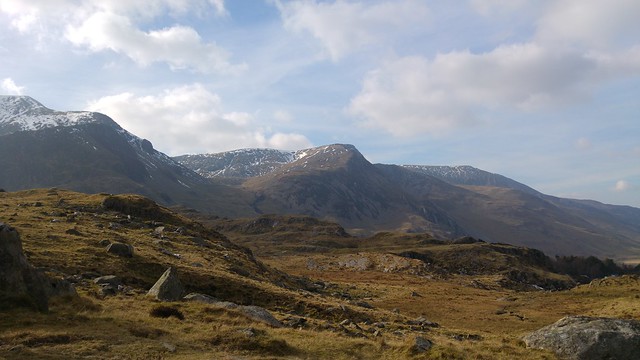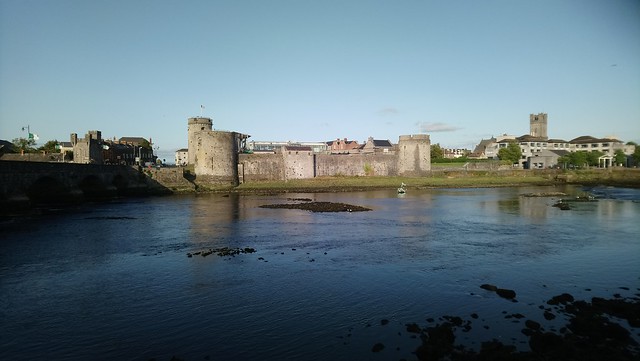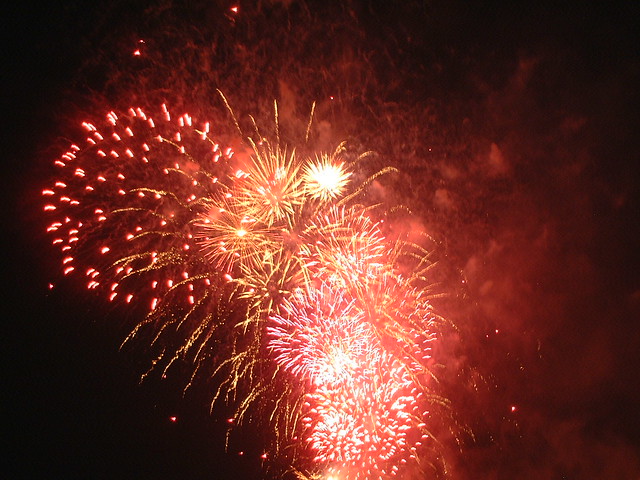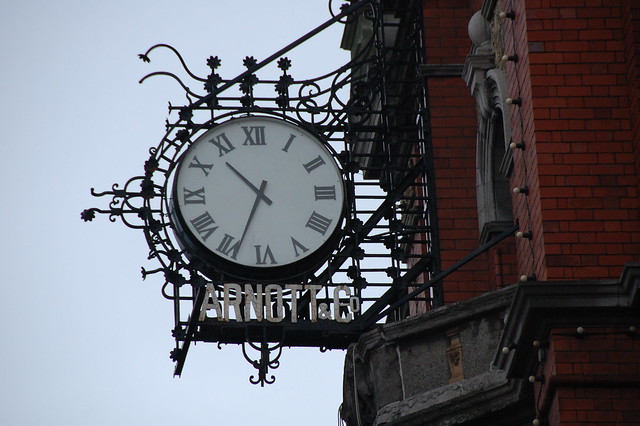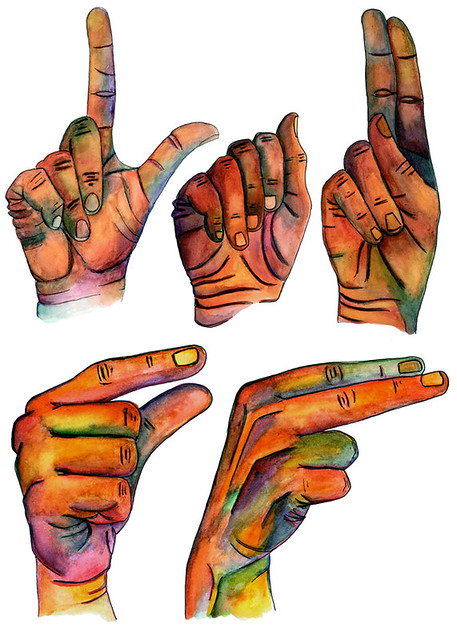Words for land, country and related words in Celtic languages.
| Proto-Celtic | *tīros = dry land, land, earth *wo-tīro- = piece of land |
|---|---|
| Old Irish (Goídelc) | tír = land, country, territory, ground Tír inna n-Óc = (mythical) Land of Youth |
| Irish (Gaeilge) | tír [tʲiːɾʲ] = country, land, state, nation; region, district. territory, rural district, country native, ordinary tírdhreach = landscape tíreach = native, of the country tíreachas = domesticity tíreánach = mainlander tíreolaí = geographer tíreolaíocht = geography tírghrá = patriotism tírghrách = patriotic tírghráthóir = patriot Tír na nÓg = (mythical) Land of the Young/Youth |
| Scottish Gaelic (Gàidhlig) | tìr [tʲiːrʲ] = land, country, territory tìreach = countryman, patriot tìr-eòlas = geography tìr-ghràdhaiche = patriot tìr-mór = mainland, continent Tìr nan Òg = (mythical) Land of the Young/Youth àrd-tìr = highland |
| Manx (Gaelg) | çheer = land, country, state, territory, shore çheeragh = native çheer-ghraihagh = patriotic çheer-oayllee = geographer çheer-oaylleeaght = geography çheer vooar = mainland çheer yalloo = landscape Çheer ny Aeg = (mythical) Land of Youth |
| Proto-Brythonic | *tir [ˈtiːr] = land |
| Old Welsh | tir = land |
| Middle Welsh (Kymraec) | tir, tyr = land |
| Welsh (Cymraeg) | tir [tiːr] = land, ground, soil, turf, estate, open land, region, territory, domain, country, earth, ridge tiriaf, tirio = to land, come ashore, disembark, arrive, reach tir(i)og = landowning, landed tiriogaeth = territory, realm, district, tract, (piece of) land tiriogaethol = territorial tirwedd = landscape, scenery, (geographic) relief |
| Cornish (Kernewek) | tir = land, earth tira = to land, come ashore tiredh = territory tirlanow = landfill tir meur = mainland tirnos = landmark tirwedh = landscape konna tir = peninsula penn tir = headland |
| Breton (Brezhoneg) | tir = land penn-tir = headland |
Etymology: possibly from the Proto-Indo-European *tērs-os/tḗrs (to heap up, increase, enlarge) [source].
| Proto-Celtic | *wlatis = sovereignty, rule *walo- = prince, chief *walatro- = ruler |
|---|---|
| Old Irish (Goídelc) | flaith [flaθʲ] = lordship, sovereignty, rule, kingdom, realm, prince, ruler flaithem = prince, ruler flaithemail = princely, munificent flaithemnacht = rule flaithemnas, flaithius = rule, sovereignty flaithiúlacht = princeliness, munificence, lavishness, generosity |
| Irish (Gaeilge) | flaith [fˠlˠah/fˠlˠa] = lordship, sovereignty, ruler, prince, lord, chief banfhlaith = princess flaithbheartach = princely, generous flaithbhile = princely scion, noble champion flaitheas = rule, sovereignty, kingdom, realm flaitheasach = heavenly, celestial co-fhlaitheas = confederation flaithiúil = princely, munificent, lavish, generous flaithiúlach = lavish, generous flaithiúnta = sovereign, heavenly mì-fhlathail = ignoble |
| Scottish Gaelic (Gàidhlig) | flath [fl̪ˠah] = king, prince, ruler, noble banfhlath = wife of a chieftain, noblewoman flath-shonas [fl̪ˠahənəs] = dominion, kingdom, heaven, the heavens flathail = noble, gallant, patrician, princely, majestic; blithesome mì-fhlathail = ignoble |
| Manx (Gaelg) | flah = prince, potentate flaunys = heaven, utopia, paradise |
| Proto-Brythonic | *gwlad [ˈɡwlaːd] = sovereignty, country *gwlėdig = civil, secular, established, national *gwaladr [ɡwaˈladr̩] = ruler |
| Old Welsh | gulat = country, realm |
| Middle Welsh (Kymraec) | gulat, gulad, gwlat, gwlad = country, realm |
| Welsh (Cymraeg) | gwlad [ɡwlaːd/ɡlaːd] = country, land, province, region, district, kingdom, realm, domain; nation, the people of a country gwaladr = ruler, sovereign gwladaidd = rural, rustic countrified, homely, plain, mean, poor, boorish, vulgar, rough, clumsy, awkward gwladiath = native tongue, mother tongue gwladwr = countryman, peasant, rustic, compatriot, inhabitant, citizen gwledig = rural rhyngwladol = international |
| Old Cornish | gulat = country |
| Cornish (Kernewek) | gwlas = country gwlaskar = patriotic gwlaskarer / gwlaskarores = patriot gwlaskarenja / gwlaskerensa = patriotism gwlaskor = kingdom, realm |
| Old Breton | guletic = prince |
| Middle Breton | gloat = kingdom, wealth gloedic = count |
| Breton (Brezhoneg) | glad [ɡlɑːt] = inheritance, heritage, patrimony |
Etymology: from the Proto-Indo-European *h₂wélh₁tis/*h₂wl̥h₁téy-, from *h₂welh₁- (to rule, strong, powerful) [source].
| Proto-Celtic | *talamū = earth |
|---|---|
| Gaulish | *talamon = ? |
| Old Irish (Goídelc) | talam [ˈtalaṽ] = earth, (dry) land, country, soil, dirt, clay |
| Irish (Gaeilge) | talamh [ˈt̪ˠɑlˠəvˠ/ˈt̪ˠalˠə/ˈt̪ˠalˠu] = earth, ground, land, dry land, soil, soild base (for discussion, understanding) talamhchreathach = seismic talamhchrith = earthquake talamhiata = land-locked talamhluas = ground speed |
| Scottish Gaelic (Gàidhlig) | talamh [tal̪ˠav] = earth, ground, Earth talamh bàn = fallow/unmanured ground talamh-dearg = tiled soil, ploughed land talamh-làidir, talamh-glas = unploughed land talamh-rèisg = marshy/boggy ground talamh-àitich = arable land, cultivable land |
| Manx (Gaelg) | thalloo = country, land, shore, terrain, territory, clod, earth, ground , soil thallooinaghey = to earth, earthing |
Etymology: from the Proto-Indo-European *telh₂- (ground) [source]. The French surname Talmont, and the placenames Talmont-sur-Gironde and Talmont-Saint-Hilaire come from the same Proto-Celtic root, via the Gaulish *talamon, and the Latin Talamone / Talmun.
Words from the same PIE root include tellurian (of or relating to the earth) in English, тло [tɫɔ] (background, environment, ground, basis) in Ukrainian, потолок [pətɐˈɫok] (ceiling, upper limit, roof) in Russian, tło [twɔ] (background) in Polish, तल [t̪əl] (bottom, level, storey, floor) in Hindi [source].
Sources: Wiktionary, Am Faclair Beag, Online Manx Dictionary, Teanglann.ie, eDIL – Electronic Dictionary of the Irish Language, In Dúil Bélrai English – Old Irish glossary, Geiriadur Prifysgol Cymru, Gerlyver Kernewek, Dictionaire Favereau, TermOfis, English – ProtoCeltic WordList (PDF), Etymological Dictionary Of Proto Celtic
